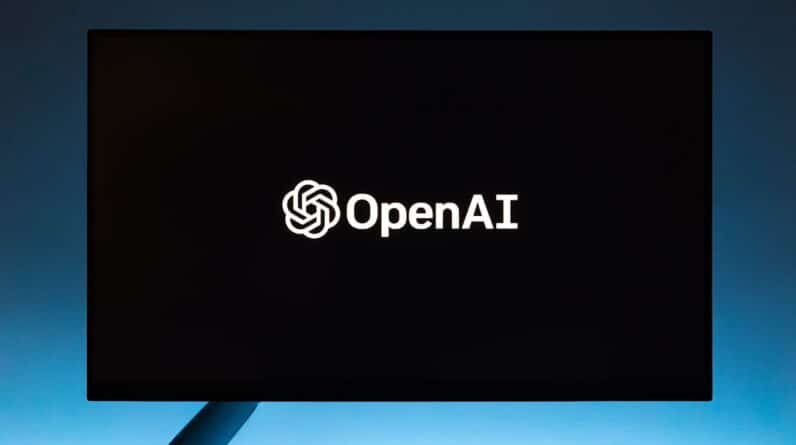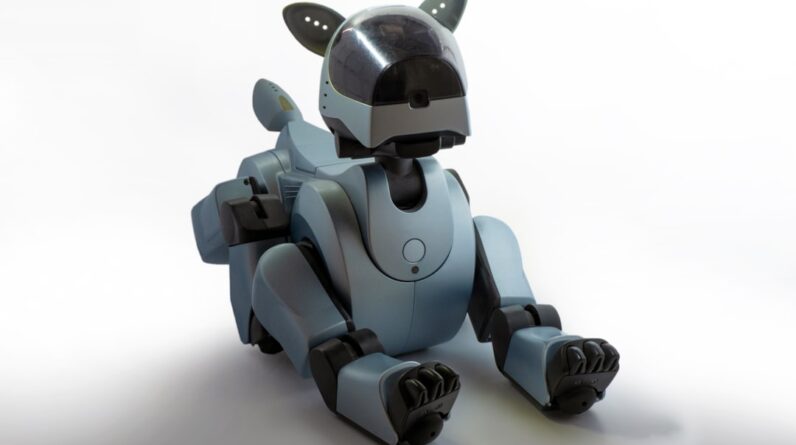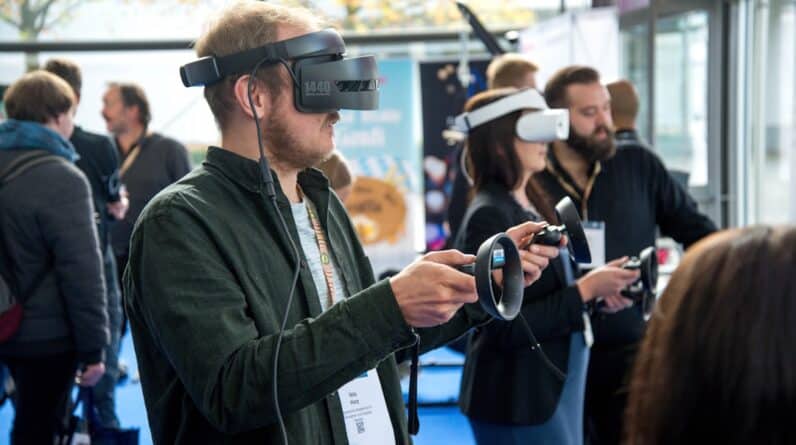As you delve into the world of artificial intelligence, you may find yourself captivated by its vast potential to transform various aspects of life. AI promises to enhance efficiency, streamline processes, and provide solutions to complex problems that have long plagued humanity. From automating mundane tasks to offering insights through data analysis, the benefits of AI are becoming increasingly apparent.
Imagine a world where your daily routines are simplified, allowing you to focus on more creative and fulfilling endeavors. This is not just a distant dream; it is a reality that AI is beginning to shape. Moreover, AI has the potential to revolutionize industries by improving decision-making processes.
In sectors such as finance, marketing, and logistics, AI algorithms can analyze vast amounts of data at lightning speed, uncovering patterns and trends that would be impossible for humans to detect. This capability not only enhances productivity but also leads to more informed decisions, ultimately driving innovation and growth. As you consider the implications of these advancements, it becomes clear that AI is not merely a tool; it is a catalyst for change that can elevate society as a whole.
Key Takeaways
- AI has the potential to revolutionize industries and improve efficiency and productivity.
- Ethical considerations must be taken into account when developing and implementing AI technologies.
- AI has the potential to both create and eliminate jobs, and can have a significant impact on the economy.
- AI has the potential to transform healthcare and medicine, leading to improved diagnosis and treatment.
- AI can play a crucial role in addressing global challenges such as climate change and poverty.
The Ethical Implications of AI Advancements
As you explore the advancements in AI, it is crucial to confront the ethical implications that accompany such rapid progress. The integration of AI into everyday life raises questions about privacy, accountability, and bias. For instance, as AI systems become more prevalent in decision-making processes—such as hiring practices or law enforcement—there is a growing concern about the potential for inherent biases to be perpetuated.
You may wonder how we can ensure that these systems are fair and just, particularly when they are trained on historical data that may reflect societal prejudices. Furthermore, the issue of accountability looms large in discussions about AI ethics. When an AI system makes a mistake or causes harm, who is responsible?
Is it the developers who created the algorithm, the companies that deployed it, or the users who relied on its recommendations? As you ponder these questions, it becomes evident that establishing clear ethical guidelines and frameworks is essential for navigating the complexities of AI development. Without a commitment to ethical considerations, the promise of AI could be overshadowed by unintended consequences.
The Impact of AI on Employment and the Economy
The rise of AI technology has sparked intense debate about its impact on employment and the economy. As you observe the rapid automation of tasks traditionally performed by humans, you may feel a sense of uncertainty about the future job market. While some fear that AI will lead to widespread job displacement, others argue that it will create new opportunities and roles that we cannot yet envision.
The reality is likely to be a blend of both outcomes, as certain jobs become obsolete while new ones emerge in response to evolving technological needs. In this shifting landscape, it is essential to consider how you can adapt and thrive in an AI-driven economy. Upskilling and reskilling will become increasingly important as industries evolve and demand new competencies.
Embracing lifelong learning will empower you to remain relevant in a world where AI continues to reshape job functions. Additionally, as businesses leverage AI to enhance productivity and efficiency, there is potential for economic growth that could benefit society as a whole. By focusing on collaboration between humans and machines, you can help foster an environment where innovation flourishes.
AI and the Future of Healthcare and Medicine
The intersection of AI and healthcare presents a remarkable opportunity for improving patient outcomes and revolutionizing medical practices. As you consider the potential benefits of AI in this field, you may envision a future where diagnostics are faster and more accurate than ever before. Machine learning algorithms can analyze medical images with precision, assisting radiologists in identifying conditions such as tumors or fractures.
This not only enhances diagnostic accuracy but also allows healthcare professionals to allocate their time more effectively. Moreover, AI has the potential to personalize treatment plans based on individual patient data. By analyzing genetic information, lifestyle factors, and medical history, AI can help healthcare providers tailor interventions that are more likely to succeed for each patient.
This shift towards personalized medicine could lead to better health outcomes and improved quality of life for individuals. As you reflect on these advancements, it becomes clear that AI has the power to transform healthcare into a more proactive and patient-centered system.
The Role of AI in Solving Global Challenges
As you contemplate the pressing global challenges we face today—such as climate change, food security, and public health crises—you may find yourself intrigued by how AI can play a pivotal role in addressing these issues. For instance, AI-driven models can analyze environmental data to predict climate patterns and assess the impact of human activities on ecosystems. This information can inform policy decisions and guide efforts toward sustainable practices that protect our planet for future generations.
In addition to environmental concerns, AI can enhance agricultural productivity by optimizing resource use and improving crop yields. By analyzing soil conditions, weather patterns, and market trends, AI systems can provide farmers with actionable insights that lead to more efficient farming practices. As you consider these possibilities, it becomes evident that harnessing the power of AI could be instrumental in creating solutions that benefit both humanity and the environment.
The Risks and Dangers of Unchecked AI Development
Autonomous Systems and Unaccountable Decision-Making
One significant concern is the possibility of creating autonomous systems that operate without human oversight. Such systems could make decisions with far-reaching consequences—ranging from military applications to financial markets—without accountability or ethical considerations.
Exacerbating Inequalities and Widening the Digital Divide
Additionally, there is a growing fear that AI could exacerbate existing inequalities in society. If access to advanced technologies remains limited to certain groups or regions, the digital divide could widen further, leaving marginalized communities behind.
Proactive Measures for Inclusive AI Development
As you reflect on these dangers, it becomes clear that proactive measures must be taken to ensure that AI development aligns with societal values and promotes inclusivity rather than division.
The Importance of Ethical and Responsible AI Governance
In light of the challenges posed by rapid advancements in AI technology, establishing ethical and responsible governance frameworks is paramount. As you consider your role in this process, you may recognize the importance of collaboration among stakeholders—including governments, industry leaders, researchers, and civil society—to create guidelines that prioritize ethical considerations in AI development. By fostering open dialogue and transparency, you can contribute to building trust in AI systems and ensuring they serve the greater good.
Moreover, implementing regulatory measures can help mitigate risks associated with AI deployment. These regulations should focus on promoting fairness, accountability, and transparency while encouraging innovation. As you engage with these discussions, remember that your voice matters; advocating for responsible governance can help shape a future where AI technologies are developed with care and consideration for their societal impact.
Building a Positive Future with AI: Opportunities for Collaboration and Innovation
As you look ahead to the future shaped by artificial intelligence, it is essential to embrace opportunities for collaboration and innovation. The potential for positive change is immense when diverse perspectives come together to tackle complex challenges. By fostering interdisciplinary partnerships between technologists, ethicists, policymakers, and community leaders, you can contribute to creating solutions that are not only effective but also equitable.
In this collaborative spirit, consider how you can leverage your skills and knowledge to drive positive change within your community or organization. Whether through participating in hackathons focused on social good or engaging in discussions about ethical AI practices, your involvement can help shape a future where technology serves humanity’s best interests. As you navigate this evolving landscape, remember that building a positive future with AI requires collective effort—together, we can harness its potential for transformative impact while ensuring ethical considerations remain at the forefront of development.
In a related article on AI Lab 360, “What Exactly AI Means,” the concept of artificial intelligence is explored in depth, shedding light on the various definitions and interpretations of AI. This article delves into the different aspects of AI and how it is shaping the future of technology and humanity. To learn more about the smartest AI in the world, check out the article “What is the Name of the Smartest AI in the World” on AI Lab 360. Additionally, “AI and Future Possibilities” discusses the endless possibilities that AI presents for the future of humanity, making it a must-read for those interested in the potential impact of artificial intelligence. Source
FAQs
What is the AI Utopia?
The AI Utopia refers to a hypothetical future in which artificial intelligence (AI) has advanced to the point where it has solved many of humanity’s problems and created a near-perfect society.
What are some potential benefits of the AI Utopia?
In the AI Utopia, AI could potentially eliminate poverty, disease, and environmental degradation. It could also lead to significant advancements in technology, medicine, and overall quality of life.
What are some potential risks of the AI Utopia?
Some potential risks of the AI Utopia include job displacement due to automation, loss of privacy, and the potential for AI to surpass human intelligence and become uncontrollable.
How close are we to achieving the AI Utopia?
The AI Utopia is currently a hypothetical concept, and it is difficult to predict how close we are to achieving it. While AI has made significant advancements in recent years, there are still many challenges and ethical considerations that need to be addressed.
What are some ethical considerations related to the AI Utopia?
Ethical considerations related to the AI Utopia include issues of fairness, accountability, and transparency in AI decision-making, as well as concerns about the potential for AI to be used for malicious purposes.






